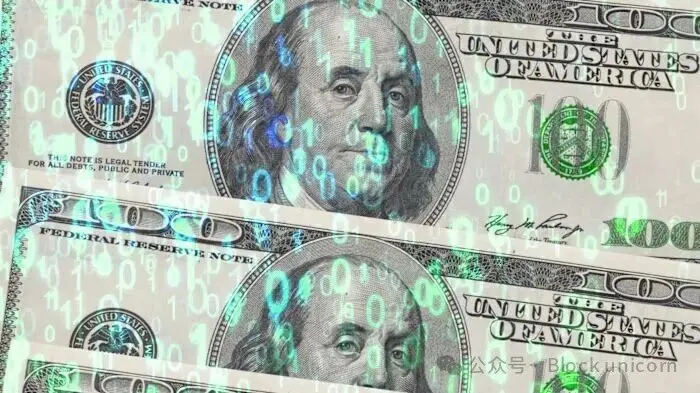The Times Editorial: Trump's Crypto Commitment is a "Paradox" That Could Harm Everyone
Author: IAIN MARTIN
Compiled by: BitpushNews
A week ago, I might have been like you, having never heard of the Paul brothers, but that all changed in the past few days. I now know that Jake Paul is an American actor who then became a professional YouTuber and later a celebrity boxer, who last week faced off against the 31-year-older Mike Tyson in a Netflix live event.
As expected, the young man won, but he is clearly a smart guy, reportedly earning $40 million, which is double what the gasping Tyson was paid.

Meanwhile, Jake's brother Logan is a wrestler and a wealthy internet celebrity who is facing scrutiny over cryptocurrency trading, with accusations that he promoted investments without disclosing investment returns. It is said that after agreeing to an interview with the BBC at a training facility in Puerto Rico, he hired a Logan impersonator to take his place, along with a group of supporters who booed the BBC.
Both brothers symbolize an era where being a social media influencer can earn millions, but Logan's role in the cryptocurrency frenzy is the more interesting phenomenon.

Currently, the cryptocurrency market is booming, with prices continuing to soar in the wake of Donald Trump's election victory.
Reports emerged yesterday that the Trump Media & Technology Group, founded by Trump three years ago, is nearing a deal to acquire the cryptocurrency trading platform Bakkt. Some of the major trends of our time—populism, Trump, celebrities and the wealthy lifestyle amplified by social media—seem to be converging in the cryptocurrency trend, which, regardless of how it develops, could impact us all.
It's okay to admit that you don't really understand Bitcoin or other cryptocurrencies. Most of us don't, even though we need to start taking it more seriously, as it is having disruptive effects that even influence the thinking of the incoming U.S. government.
Cryptocurrency is essentially an alternative to currency issued or sanctioned by central banks or governments. Digital tokens can be exchanged or stored, and due to encryption, they cannot be replicated or stolen. We are assured that it is completely secure and cannot be hacked.
The Biden administration has cracked down on the cryptocurrency Wild West, accusing parts of the industry of violating U.S. laws. In contrast, Trump has promised to be the "crypto president," suggesting there will be a cryptocurrency advisory board and a U.S. strategic Bitcoin reserve. With the Republican Party winning big in Congress, the excited cryptocurrency industry supporting Trump is lobbying to open the banking system to allow banks to serve cryptocurrency companies.
Amid this excitement, Bitcoin hit a historic high of $94,000 this week, rising nearly $20,000 since election day.
In the wake of Bitcoin's surge, thousands of small players hope to ride this wave to success. Social media is filled with discussions about tokens, memes, and FOMO: "The must-have meme coin for the next crypto bull market—grab them before the surge."

These things are popular among young people, especially young men.
It's easy to understand why when they realize how unfriendly the current economic fundamentals are to their generation.
As those so-called crypto millionaires are active online, young people are drawn in and follow suit, claiming that the existing financial system is rigged and that they have found alternatives that will surely make them rich—it's no surprise.
But there is a significant paradox in how the Trump world treats the cryptocurrency movement as a cause.
Trump only cares about American power, and its primary manifestation is the dollar. Having the world’s reserve currency gives the U.S. the ability to control the workings of the financial system and sanction "misbehaving" governments, which is the true dollar power.
However, at the core of the cryptocurrency movement, aside from all the hype, is an assumption that at some point—perhaps before the end of this century—the existing system will collapse.
This claim posits that successive governments and central banks have printed money excessively and accumulated massive debt, with U.S. national debt soon to surpass $36 trillion. Despite Trump’s talk of eliminating waste, his cuts are just a drop in the bucket compared to the massive debts like defense and interest on the debt, and spending during Trump's presidency will increase.
Thus, the argument from crypto advocates is to put your money into cryptocurrency so that the U.S. government cannot devalue it or seize it.
Even those who have experienced the terrible aftermath of previous financial bubbles and are deeply skeptical of cryptocurrency can see that at some point, global investors might refuse to fund or purchase the U.S.'s massive debt and go on strike during an unforeseen future crisis, which would be the root of all financial crises.

Will cryptocurrency believers, including Trump's companies, dominate in the new system? What about Americans holding traditional dollars without Bitcoin? It's hard to imagine how a dollar collapse would align with the "America First" ideology.
Trump's budget-cutting plan includes having Elon Musk head the Department of Efficiency, abbreviated as Doge. This name also refers to a meme coin—Dogecoin, which was originally created as a joke, although it has since matured.
Musk chose the nickname Doge to represent his role in reshaping America, which is the ultimate joke in the tech world. Let's hope we can still laugh about it a decade from now.


























